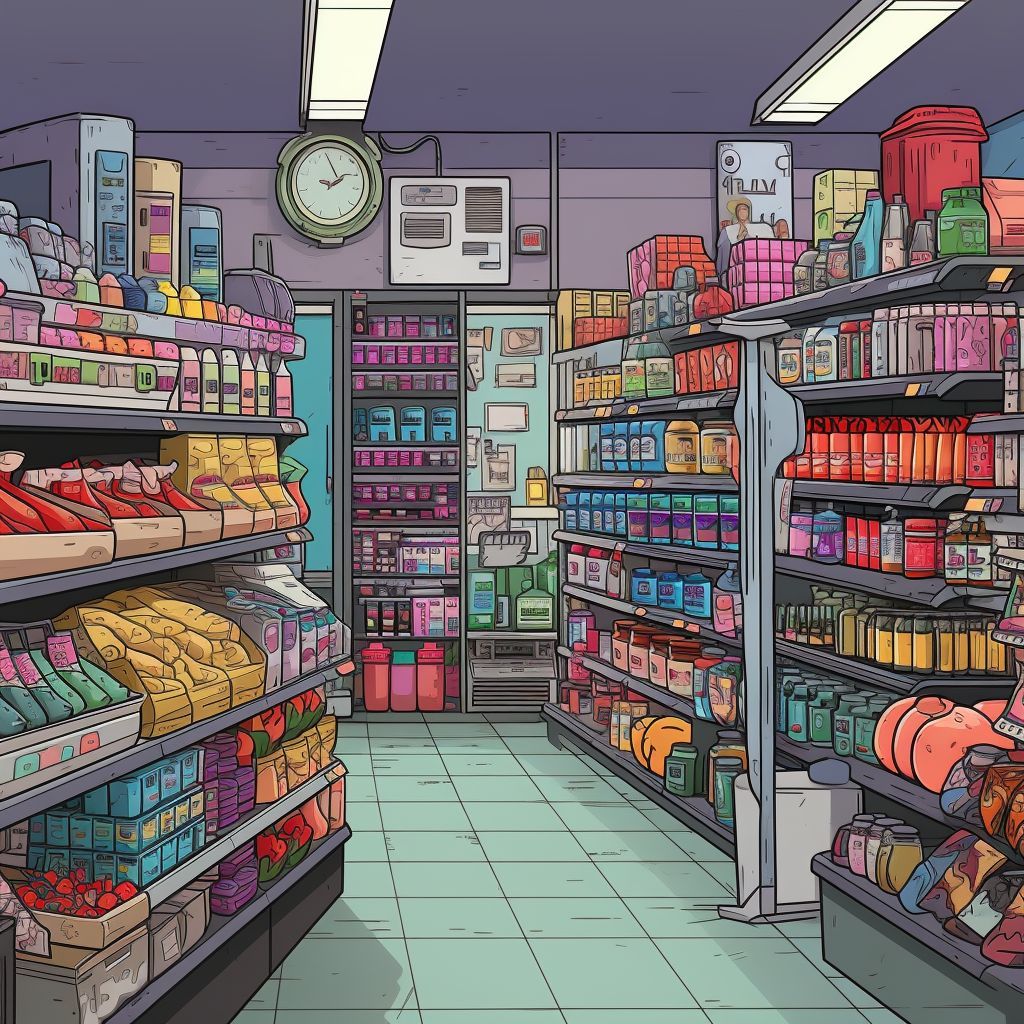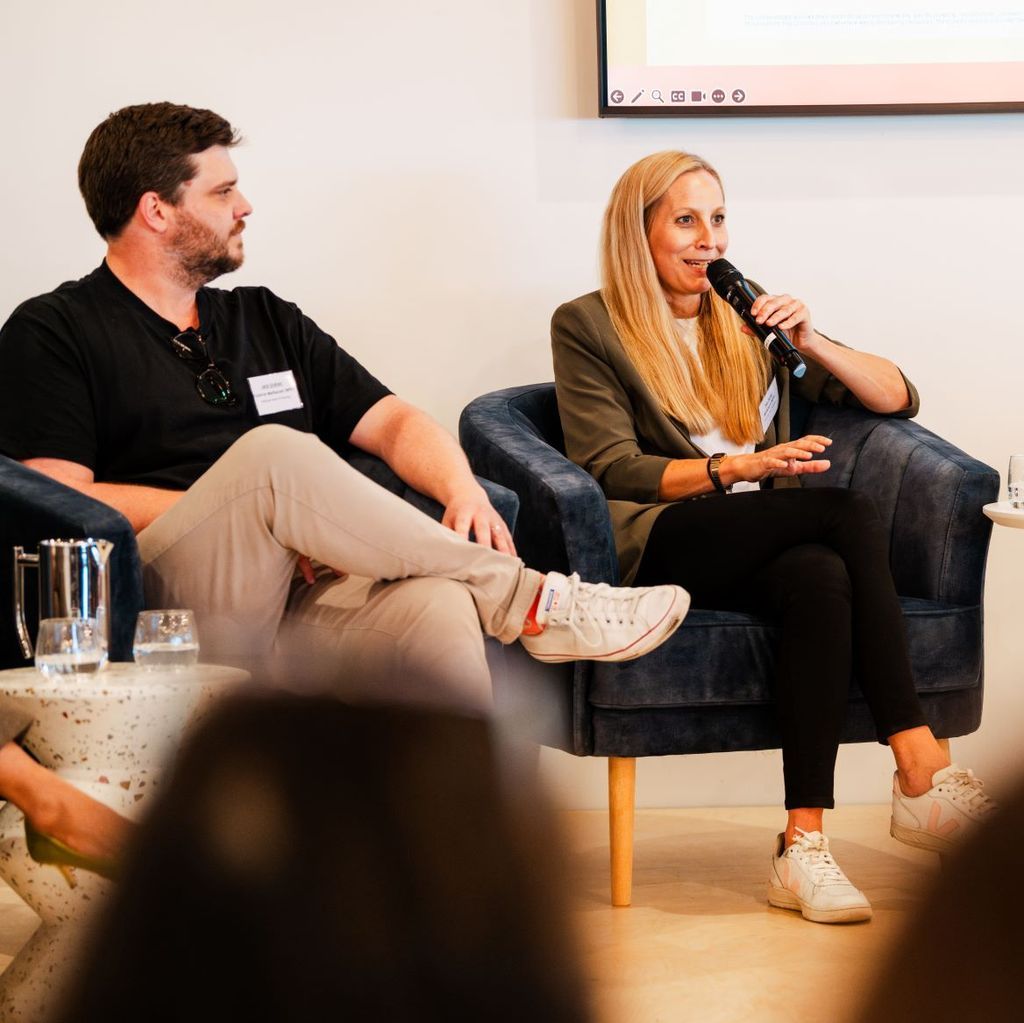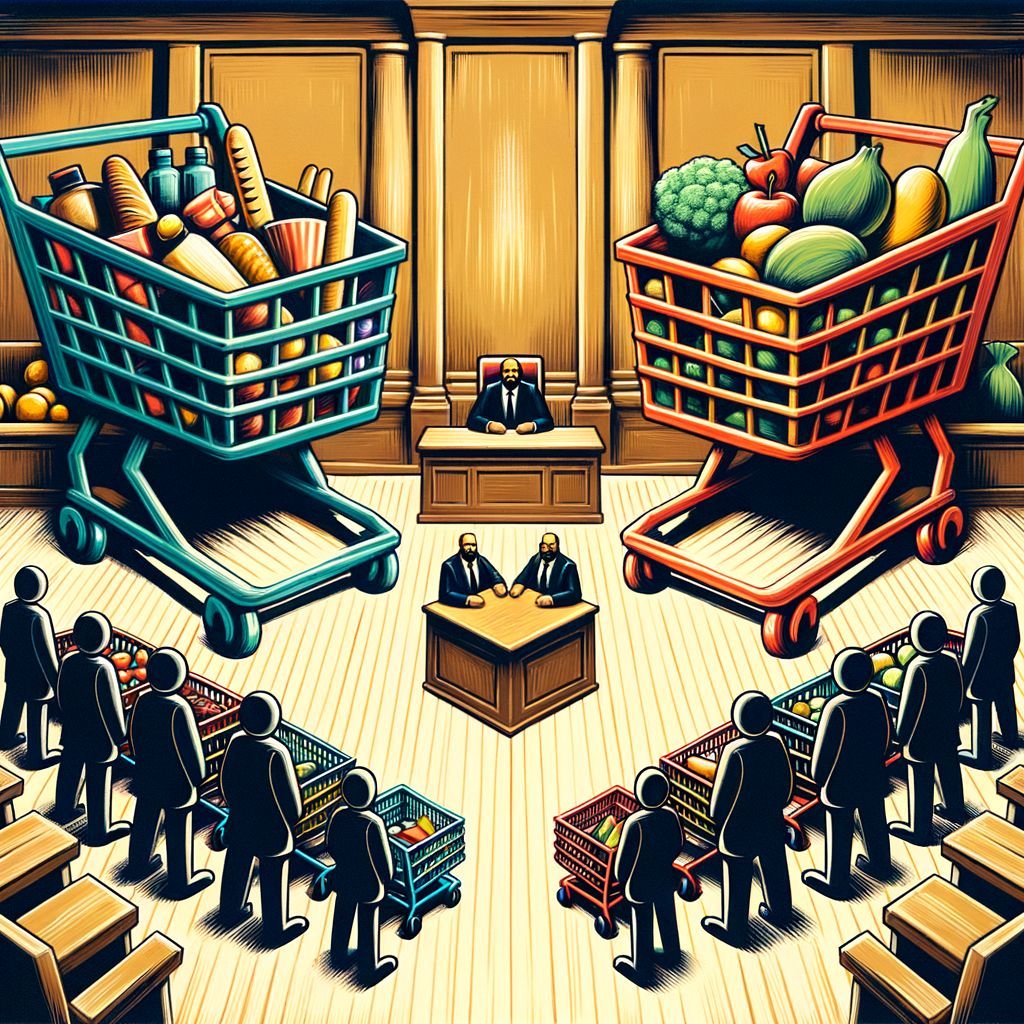

Image by Midjourney Pic: Midjourney
Editors' Note: Many Fast News images are stylised illustrations generated by Dall-E. Photorealism is not intended. View as early and evolving AI art!

Inflation's harsh blow,
Woolworths seeks balance in storm,
Senate awaits show.

Woolworths, Coles CEOs to address confirmed Senate inquiry on Supermarket Prices
Woolworths Group CEO, Brad Banducci, as well as Coles CEO, Leah Weckert, have both confirmed they will be appearing at next year's Senate Select Committee into Supermarket Prices, established in the face of economic inflation.
The announcements come after the Australian Senate on 6 December 2023 resolved to establish a Select Committee on Supermarket Prices to inquire into and report on the price setting practices and market power of major supermarkets. The inquiry has been spearheaded by the Australian Greens, and aims to scrutinise the impact of market concentration on food prices and the pattern of pricing strategies employed by the supermarket duopoly. It will also assess the rise in essential item prices, the validity of discounts offered, and the inflation of profits during economic hardship.
“Coles and Woolworths are making billions in profits by price gouging in a cost of living crisis,” Greens Economic Justice Spokesperson Senator Nick McKim said on 3 December. “For too long the big supermarkets have had too much market power. This allows them to dictate prices and terms that are hitting people hard.”
“It’s time to smash the duopoly.”
In a statement, Banducci said Woolworths is very aware of the pressures facing many Australian families.
"We welcome the opportunity to explain to the senate how we are working to balance the needs of our customers, our team and our suppliers in the context of economy-wide inflationary pressure," he said.
Woolworths is a major employer in Australia with a direct workforce of 180,000 and support for 18,000 suppliers, and is at the forefront of the inflationary battle.
As examples of how the supermarket giant is looking to ease the burden on consumers, Woolworths said it had implemented several price reduction strategies. These include offering 6,000 specials every week, dropping the price of all standard lamb cuts by 20 per cent, and lowering the price of 400 products for the summer season. In October, the company reduced the price of its half leg ham to $8/kg, the lowest price reportedly since 2014. Woolworths also noted Fruit & Vegetable and Meat categories are in deflation, with prices falling.
In a final note, Woolworths said Group margins were lower in the Financial Year (FY) 2023 than they were 10 years ago (FY 2014), contrasting with ABS estimates of margin growth across the broader economy.
Already this year, senior Woolworths Group executives have appeared before three parliamentary inquiries on the topics of cost of living, food security and pricing.
As the senate gears up for the latest inquiry, the Australian Retailers Association (ARA) urged the Select Committee to carefully examine all the factors contributing to food inflation, and include members of the broader food and grocery supply chain in its inquiry.
"Food prices are an obvious area of debate in an inflationary environment and we note this is the third inquiry to examine supermarkets and cost of living issues in the last 12 months," the industry group said in a statement on 7 December. "If run in an equitable way, this inquiry offers a platform for better and more informed public debate on what contributes to pricing. In this context, the ARA welcomes the inclusion of multinational food suppliers in the terms of reference alongside other members of the broader food and grocery supply chain.
"Retailers are acutely aware of the significant financial challenges being faced by many Australians and are doing their best to keep a lid on prices, despite inflationary pressures driving up the cost of goods and business, across the board."
The ARA also pointed to ABS CPI, showing the rate of annual food inflation peaked at 9.2% in the December quarter 2022 and has been moderating ever since. Quarterly data released by ABS in October also showed food inflation was running at 4.8% – now lower than headline inflation (5.4%) for the first time in 12 months.
"The higher cost of living remains challenging for many Australians, and price rises linked to inflation are an unfortunate side effect of the significantly higher cost of doing business across the entire food and grocery supply chain. Food and grocery suppliers and Australian retailers are not immune to this," the ARA continued.
"While the raw profit numbers may seem large to the average Australian, it is important to consider these in the proper context. During the recent reporting season, Coles and Woolworths reported combined after-tax profits which represented less than 3 cents in profit for every dollar of sales."
In a statament, Coles CEO Leah Weckert also recognised cost-of-living pressures are front-of-mind for many Australians and we are working hard to keep prices affordable for Australian households.
“We have worked collaboratively with previous inquiries and are ready to work with the Committee and engage in an informed discussion on the factors that influence supermarket pricing," she stated. “We continue to invest in providing great value to our customers, supporting our network of more than 8000 suppliers and providing employment to more than 120,000 Australians right across the country.”
Coles said it remains focused on delivering value to Australian households and families through its Great Value Hands Down campaign, thousands of weekly specials, Flybuys program and other initiatives. Coles’ total supermarkets price inflation declined to 3.1% for the July-September quarter. Fresh food (including fresh produce, meat, deli & seafood) experienced deflation of 2.3% during the July-September quarter.










